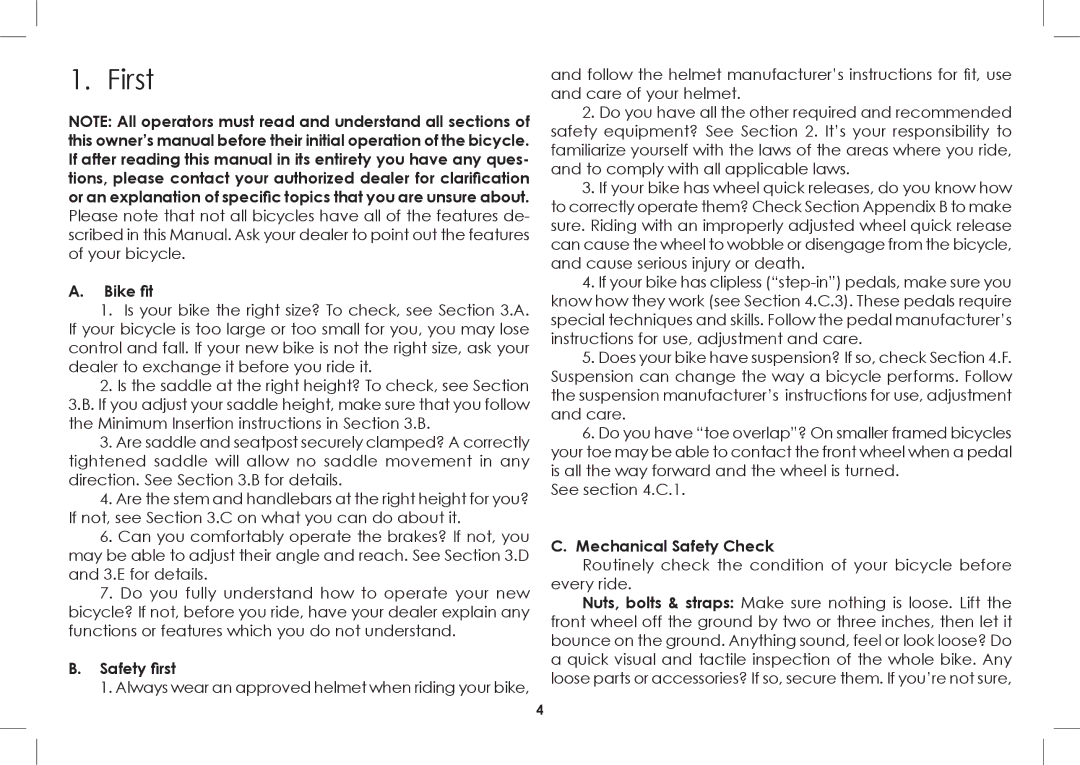2008-2005 specifications
The Diamondback 2008-2005 models highlight a commitment to innovation and performance in the world of bicycles. A fusion of advanced technology and user-friendly features, these bikes cater to a range of riding styles and preferences, making them a popular choice among cycling enthusiasts.One of the standout features of the Diamondback series during this period is its focus on frame design. The bikes are constructed with high-quality aluminum and steel, ensuring durability while keeping the weight manageable for various terrains. The geometry of these frames is engineered for optimal performance, offering a balanced ride that's both responsive and stable, whether on the road or rugged trails.
In terms of technology, Diamondback has integrated cutting-edge components into their bicycles. The series includes a variety of gear options, featuring reliable Shimano and SRAM components that enhance the shifting experience. This ensures that riders can easily tackle inclines or accelerate speed on flat terrains without missing a beat. Additionally, the inclusion of hydraulic disc brakes provides superior stopping power, enhancing safety and control in all conditions, especially during wet weather.
The suspension systems featured in Diamondback bikes from 2008-2005 are another highlight. The models often utilize a combination of front suspension forks, and in some cases, full suspension setups, that effectively absorb shocks and bumps from rough terrain. This technology allows riders to maintain traction and comfort, making rides smoother and more enjoyable.
Tire selection and design also play a critical role in the performance of these bikes. Diamondback bikes are fitted with high-quality tires that provide excellent grip and traction, allowing cyclists to navigate through various surfaces, from muddy paths to city streets. The tread patterns are optimized for stability, ensuring that riders can confidently tackle corners and uneven ground.
Finally, a variety of model options in the Diamondback 2008-2005 range ensure that cyclists of all skill levels can find a suitable bike. Whether looking for a lightweight road bike for speed, a versatile hybrid for commuting, or a rugged mountain bike for adventurous trails, Diamondback has catered to diverse needs, ensuring a bike for every rider.
In conclusion, the Diamondback 2008-2005 models stand out for their superior construction, advanced technology, and thoughtful design. These bicycles represent a harmonious blend of performance, comfort, and versatility, making them a reliable choice for anyone passionate about cycling.

